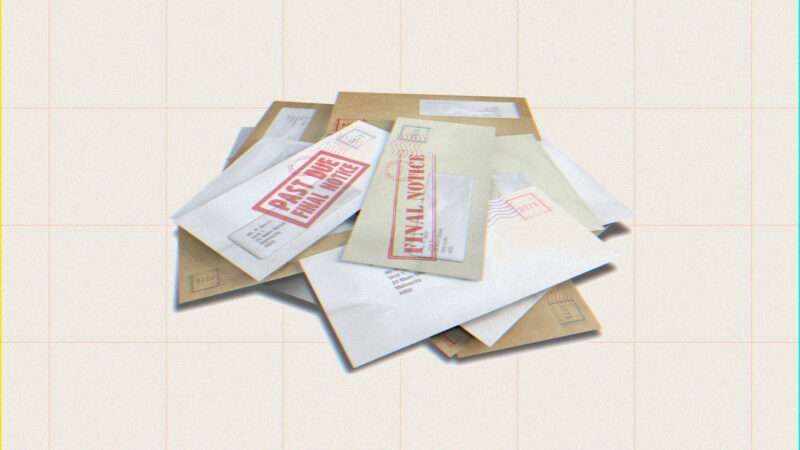
After scammers made off with billions of dollars in pandemic-era emergency loans that were supposed to go to small businesses, the federal agency responsible for running that program is now giving up on getting many borrowers to repay what they owe.
In a new report, the inspector general for the Small Business Administration (SBA) says that decision might violate federal law.
With a wave of defaults seemingly likely, the SBA decided in April to cease collections activities on over 3 million loans that had been distributed through the Economic Injury Disaster Loan (EIDL) program, which provided loans of up to $2 million to help business pay expenses incurred due to the pandemic. Loans that were not repaid on time were supposed to be referred to the Treasury Department, which has the authority to take steps the SBA cannot, like garnishing wages and foreclosing on property, in order to encourage repayment of past-due loan balances.
But the SBA decided not to take those steps for outstanding EIDL loans with balances of $100,000 or less, an inspector general's report released last month shows. Of the over 4 million loans distributed by the EIDL program, over 3 million were below that threshold—and those loans total over $70 billion, according to the inspector general.
"SBA's decision not to pursue all available collection activities for these loans does not hold those who borrowed upon the public trust accountable and could incentivize other COVID-19 EIDL recipients to stop paying on their loans, creating a larger chain of delinquency," Inspector General Hannibal "Mike" Ware wrote in the report.
According to the report, the SBA's decision to forgo collections on those loans was due to the fact that enforcement costs "would likely be more than the recovery amount."
That's probably because many of those loans were distributed to scammers and fraudsters who will be difficult for the government to track down. As Reason has previously reported, an estimated $136 billion was stolen from the EIDL—that's a stunning 33 percent of the total amount distributed by the program. There's also been widespread fraud in the Paycheck Protection Program, which was similarly set up to help businesses weather the pandemic. Unlike the EIDL, however, most of the loans distributed through the Paycheck Protection Program were meant to be forgiven and never subject to repayment.
According to the newest inspector general report, over 455,000 EIDL loans with balances of $100,000 or less have been flagged as potentially fraudulent. Those loans total about $11.2 billion.
The fact that many of the EIDL's outstanding loans seem to have been awarded fraudulently is not supposed to get the agency off the hook for having to collect those payments. As Ware pointed out in a letter to SBA Administrator Isabella Guzman on September 29, the Debt Collection Improvement Act of 1996 "prohibits ending collections on fraudulent, false, or misrepresented claims."
The inspector general is also skeptical of the SBA's claim that trying to collect those delinquent loans would end up costing more than what might be recovered. The calculations used to reach that conclusion appear "unreliable," according to the report, and the SBA has not investigated the possibility of selling the delinquent loan portfolio to a private debt-collection agency, as is allowed under federal law.
The inspector general's report has "sparked an outcry on Capitol Hill," The Washington Post reported this week, as "House Republicans on Wednesday opened an investigation and joined their Senate GOP counterparts in demanding documents from the SBA."
"It's completely unacceptable that SBA is leaving taxpayers on the hook for $62 billion in EIDL loans," Sen. Joni Ernst (R–Iowa) told the Post.
At this point, any course of action taken by the SBA is only in pursuit of limiting the damage that taxpayers will have to cover. This new report mostly serves to highlight, once again, how utterly overwhelmed the SBA was by the volume of spending Congress asked it to distribute in the early days of the pandemic. The SBA "executed over 14 years' worth of lending within 14 days, and this was just the beginning," the inspector general noted in a separate report earlier this year.
Within that environment, avoiding fraud was impossible. Still, the SBA worsened the situation in key ways. For example, the agency did not run loan applications through the Treasury Department's "Do Not Pay" database—a list of known criminals and scammers—until 2021, long after the bulk of the pandemic spending was out the door. In a May 2022 report, the SBA's inspector general noted that the agency did not have "a centralized entity to design, lead, and manage fraud risk" until February 2022—nearly two years after it began distributing Paycheck Protection Program loans.
With so much money stolen, it is likely that many EIDL loans will never be repaid. That doesn't mean the SBA should just throw up its hands and stop trying.
The post After Losing Billions to Scammers, This COVID Aid Program Won't Require All Loans To Be Repaid appeared first on Reason.com.







